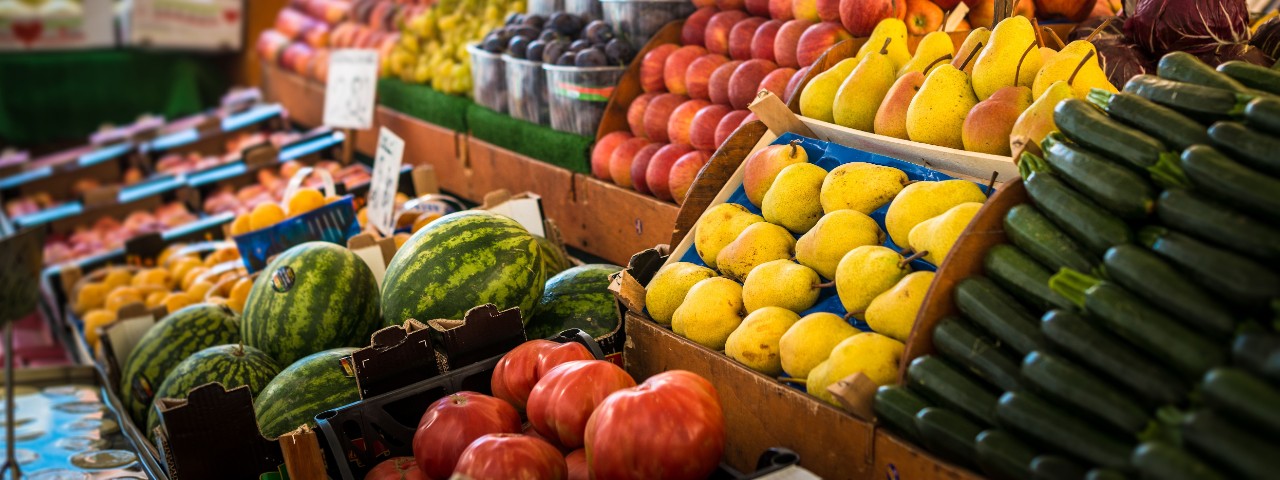
5 ways to reduce food waste while traveling
November 1, 2023
You are getting off the train on the first night of your trip, and your stomach is rumbling.
You sit down at a restaurant, order a few dishes and enjoy every bite, until – all of a sudden – you realize you are completely full, with plenty of food left on your plate.
Sound familiar? Almost every traveler can relate to the experience of letting some food go to waste on their trips.
In fact, food waste is a widespread issue. In the European Union alone, over 58 million tonnes of food waste is generated annually, according to the European Commission.
“Perfectly good food in every community on Earth is going every day to the trash,” said Hunter Halder, founder and president of REFOOD, a volunteer-led movement focused on reducing food waste and feeding people in need. “These same communities…have people who either suffer from hunger or food insecurity.”
In addition, food waste accounts for roughly 16% of the total greenhouse gas emissions from the European Union's food system, according to the European Commission.
“If food waste were a Member State, it would be the fifth largest emitter of GHG emissions,” the European Commission’s Food Waste FAQ page notes.
Fortunately, there are small changes we can make to reduce the amount of food waste we generate on our travels.
Below, you will find a few tips to keep in mind on your next trip.

Empty your refrigerator and pantry before your trip
Have you ever returned from a trip to find spoiled vegetables in your refrigerator and stale bread in your pantry?
If so, you are not alone. A recent study found that households generate a whopping 54% of food waste in the European Union.
Avoiding food waste while traveling begins before you even leave for the train station. In the days leading up to a trip, plan your meals, cut back on grocery shopping, and make an effort to eat any leftover food that may expire while you are away.
Order a small amount of multiple dishes
A simple way to reduce food waste? While dining at restaurants on your travels, “don't ask for more than you can eat,” Halder said.
But this is easier said than done, especially when travelers are confronted by a multitude of new foods they’d like to try on a trip. That’s why Ana Morgado, a deputy operations manager at Intrepid Travel, recommends friends and family traveling together order a small sample of food to share and ask for more if some are still hungry after the first dishes are finished.
“My advice is ‘let's just order a little bit of everything, so everybody can have a little bit of everything,” she said. “After that, if we're still hungry, we can always order some more.”
Bring reusable food containers for takeaway
Despite your best efforts, sometimes you may end up with some excess food at the end of a meal. In instances such as this, it helps to bring a reusable container or two on your travels so you can take food away to enjoy later.
“Some restaurants don't have bags for takeaway food. In those cases, it's very, very helpful” to bring your own reusable containers, said Frederico Ramos, a volunteer with REFOOD.
This strategy can help both the planet and your wallet — instead of budgeting extra time and money for a quick takeaway meal en route to the train station on the way to your next destination, you’ll have leftovers to enjoy as your adventure continues.
Practice good grocery shopping habits
Visiting a market or grocery store while traveling can be a great way to save money on meals while immersing yourself in local cultures. While grocery shopping, the European Commission recommends the following habits to avoid buying more food than you will be able to eat on your trip.
- Create a shopping list ahead of time. This can also help you keep track of any local specialties you would like to try on your trip.
- If possible, avoid shopping while you’re hungry. Shopping while fully sated can help you slow down and more fully absorb the experience of shopping in a new place.
- Sometimes “imperfect” fruit and vegetables will be discounted at markets and shops. Buying imperfect (yet good quality) produce that may go unpurchased may allow you to save money while helping to reduce food waste.
Look for food donation opportunities
While planning your trip, it is worth researching whether the destinations you are visiting have organizations that accept food donations from individuals.
For example, REFOOD accepts individually sealed and unopened food items. “In REFOOD centers, we know that the food is not wasted, it [is] stored in good conditions and given to people in need,” Marta Sousa Mendes of REFOOD said, via email.
If you’re able to locate organizations that accept food donations from individuals, it can be helpful to mark them on your map so you can easily find them.
“Having the right information and planning, we can make the difference,” said Mendes.
Stay up to date with Eurail
Change of currency
You cannot change the currency once you have a Pass in your cart. Remove the Pass, and then change the currency on the website header.






